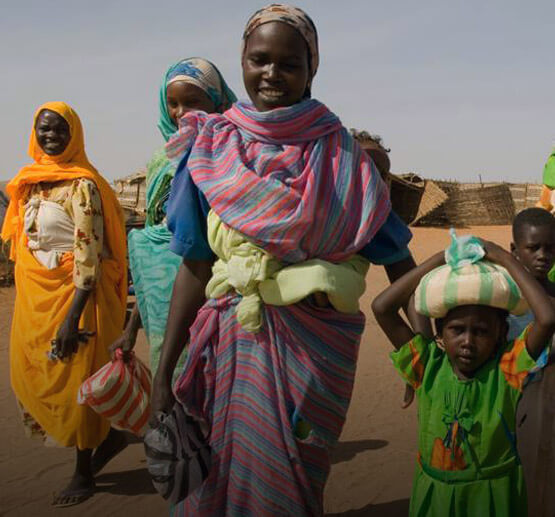Between Unspeakable Suffering and Outstanding Resilience
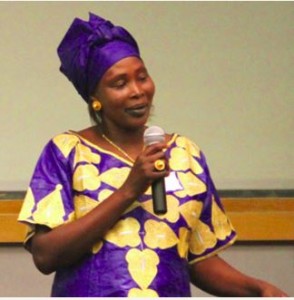 “I lived in a beautiful village in Darfur surrounded by tall acacia trees. Towards the west there was a green valley named Azum that provided us with mango, guavas, oranges, and beautiful gardens for six months during the rainy season. Toward the east there were sugarcane farms. I considered everyone in my village to be rich. Through hard work they cultivated all types of grains, vegetables and fruits. They also raised goats, sheep and cows. Most people had what they needed to survive and only went to the market to buy clothes, soap and sugar. Everyone was very friendly and supportive. If you needed help building a house, the community would come together and finish the house in one day. Life was beautiful and I was very happy.
“I lived in a beautiful village in Darfur surrounded by tall acacia trees. Towards the west there was a green valley named Azum that provided us with mango, guavas, oranges, and beautiful gardens for six months during the rainy season. Toward the east there were sugarcane farms. I considered everyone in my village to be rich. Through hard work they cultivated all types of grains, vegetables and fruits. They also raised goats, sheep and cows. Most people had what they needed to survive and only went to the market to buy clothes, soap and sugar. Everyone was very friendly and supportive. If you needed help building a house, the community would come together and finish the house in one day. Life was beautiful and I was very happy.
One day in 2003 an army came to my village early morning when I was in the valley feeding cows. At the time I was 24 years old, married, and had four children. They came on camels, horses and land cruisers, carrying heavy artillery. I could hear them chanting, shooting and setting houses on fire. It was very frightening. I realized that it must be the Sudanese Government Army and the Janjaweed (government supported militia), because we knew of nearby villages that had been attacked by them. I thought of sending my cows away so that the men could not take them. Or hiding among the animals so that the men would not see me.
Eventually my three brothers, my uncle, and his two sons came running to rescue me. But before they could reach me, the killers shot them right in front of my eyes. After this brutal killing, the militiamen came close to me and ordered that I lie down. I refused and threw stones at them, bringing one of them down. In retaliation, they shot me in the back, forced me to the ground, and raped me repeatedly, until I was unconscious. When I woke up, I was bleeding. I pretended to be dead until night came and the men left.
After they were gone, I got up and went in search of my kids. As I reached the village, I suddenly realized that I was stepping on dead bodies. The armed men had killed or wounded almost everyone that they encountered. More than one thousand people were killed on that day. I found an injured fellow that I knew and he told me that my children had been taken to the forest to hide and that I would be able to find my kids there.
I was guided to the right spot and we were finally reunited after two days. Now that we were all together, we had to get away from the killers. So we walked for three days to another village. My wounds were still bleeding and I had to carry my youngest child on my back. Finally, we approached a community where some people gave us a mixture of millet flour and water to alleviate our hunger. They also tried to stop my bleeding using traditional medicine. We had to be prepared for a longer walk to a refugee camp in Chad.
We reached Chad after a month of walking and unimaginable suffering. I often doubted that I would survive to see another day, but something deep in my heart was telling me that I would. I decided not to surrender, even when I felt exhaustion, thirst and hunger. Or when I was overwhelmed by sadness, thinking of the genocide perpetrators’ intent to humiliate and exterminate us.
In the camp, I was lucky to receive medical treatment from international NGOs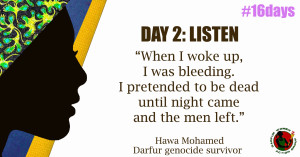 . And after six months, I was finally reunited with my husband. Since the attack to our village, he had been missing. I learned that he had been seriously wounded and was in a remote village in Darfur. I notified the International Rescue Committee and, thankfully, they found him and brought him to Chad. When he arrived, I could barely recognize him. Due to his injuries, he became permanently physically disabled.
. And after six months, I was finally reunited with my husband. Since the attack to our village, he had been missing. I learned that he had been seriously wounded and was in a remote village in Darfur. I notified the International Rescue Committee and, thankfully, they found him and brought him to Chad. When he arrived, I could barely recognize him. Due to his injuries, he became permanently physically disabled.
Life in the camp seemed safe, but when I started speaking up about what had happened to me, I was targeted to be killed. The Sudanese Government had infiltrated the camps with spies and they did not want victims speaking about the attacks to international organizations. So I eventually had to be transferred with my family to Kenya, Burkina Faso and, finally, to the United States.
In Houston, Texas, we found a new home and a new life with loving people. But when I was sent for further health treatment, I was told that my body had been severely injured by the shooting, and that I would never be able to work. It was hard to believe, but I didn’t let it shake my confidence of myself nor the mission that I had decided to accomplish in life. I was determined to be productive and optimistic, no matter what! Now that I was living safely in the United States, I wanted to go to school, get a degree, and be a fluent English speaker. I had never been to school in Sudan, because it was not considered safe for girls to go walk to school – only boys.
I am happy to say that in the last four years, I finished an ESL (English as a Second Language) course, successfully did an ACT (American College Testing) test, and I am currently working on my GED (General Education Diploma) to be able to go to college. I am doing great in my classes and remain a distinguished student, in spite of my multiple responsibilities and health situation. My children are in college and working evening jobs to support our family – from paying rent to other costs. They also play sports and are top ranking students in their schools. I have also been able to give birth to two more healthy children. Because we have been targeted for elimination, I wanted more children to overcome the loss of our people.
My plan for the future is to continue to speak up for myself and other women, fight against genocide, write a book, and study law to be able to pursue justice for me and my people.
I thank Darfur Women Action Group for giving me a voice. I would like to appeal to all of you who read my story to do whatever you can to speak up for the victims of the long-standing genocide and particularly for the women who have been victimized. I call on you to not feel discouraged by the fact that the world has failed the women of Darfur. If we all speak in one voice, we can compel the international community to act to end the genocide in Darfur, and the suffering of women elsewhere in the world.”
—
TAKE ACTION. Please join us in taking at least one action that will help end violence against women in Darfur:
- Raise awareness by sharing our campaign content on social media, using the hashtags #16Days and #StopRapeInDarfurNow.
- Tag United Nations on social media and demand accountability for the 2014 mass rape in Darfur. Share it with 10 people in your network. Use @UN on Twitter and @UnitedNations on Facebook.
- Donate to DWAG to support a rehabilitation center for women survivors of sexual violence in Darfur.
- Join our Rapid Response Network, a group of community members who are on standby to help us with campaigns and petitions.
- Send a solidarity message that we can share with our supporters and the women in Darfur: communication@darfurwomenaction.org.
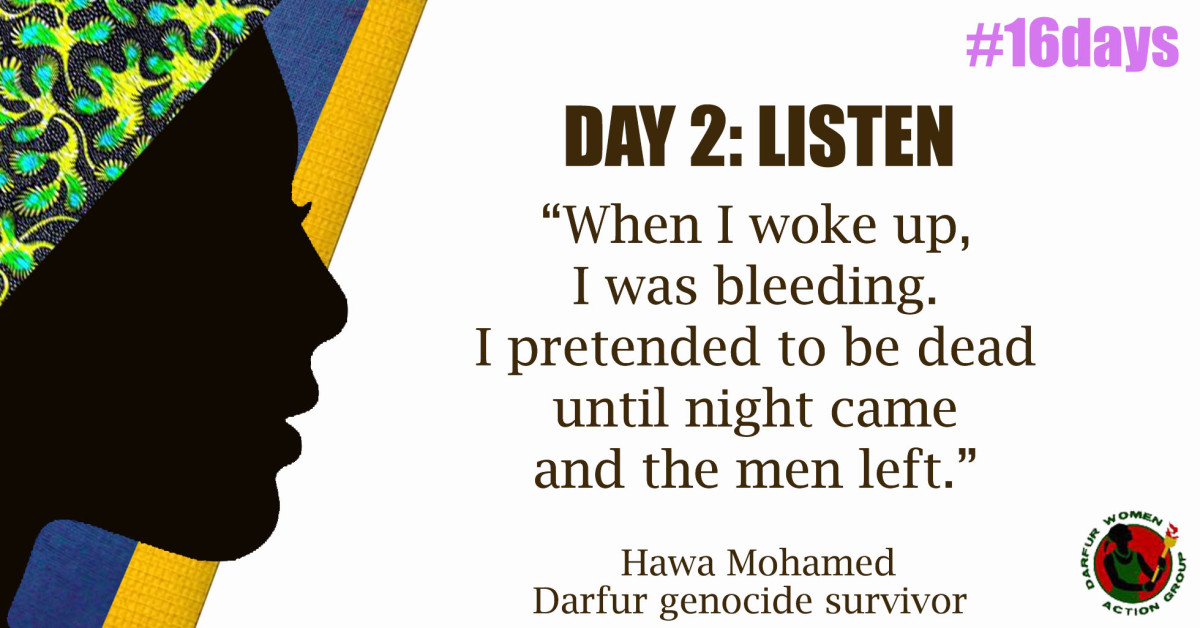
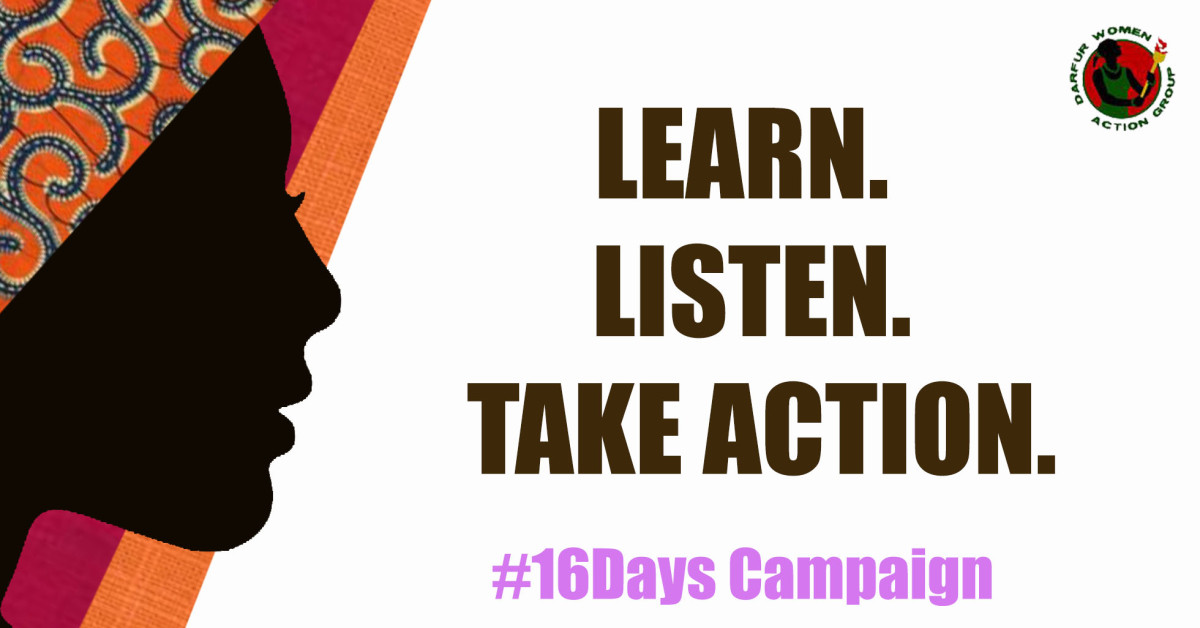
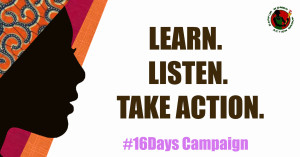 THIS IS IMPORTANT.
THIS IS IMPORTANT.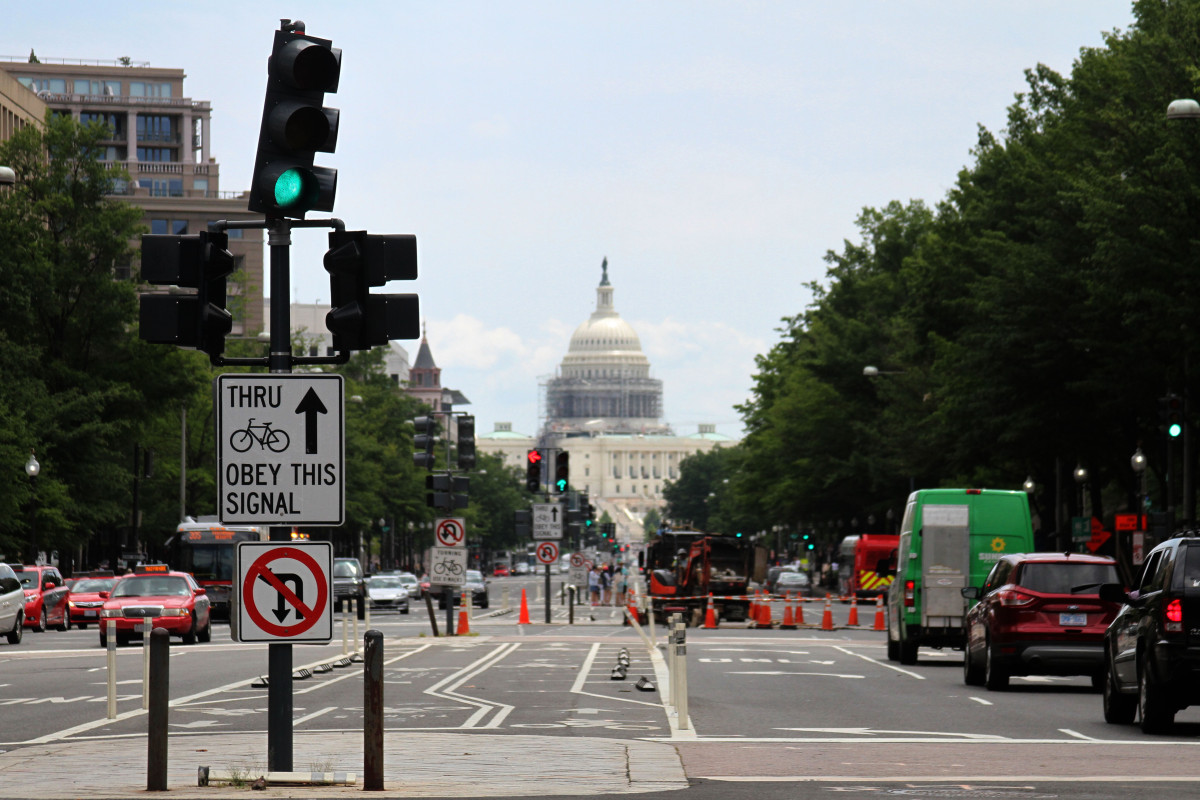
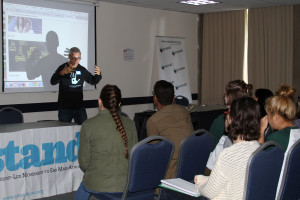
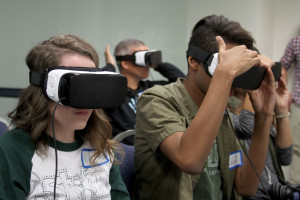
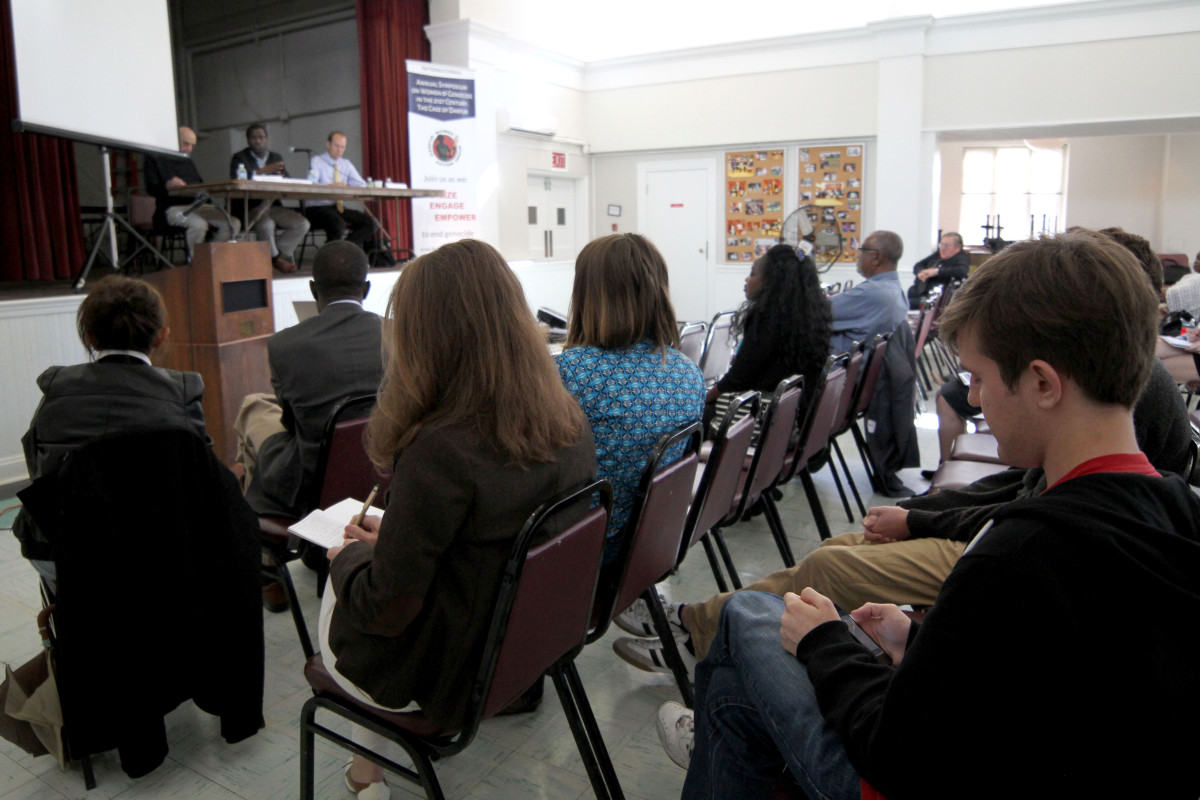
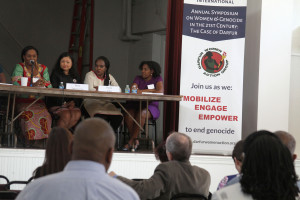
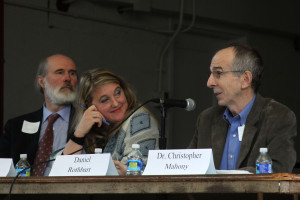
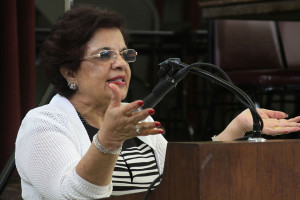
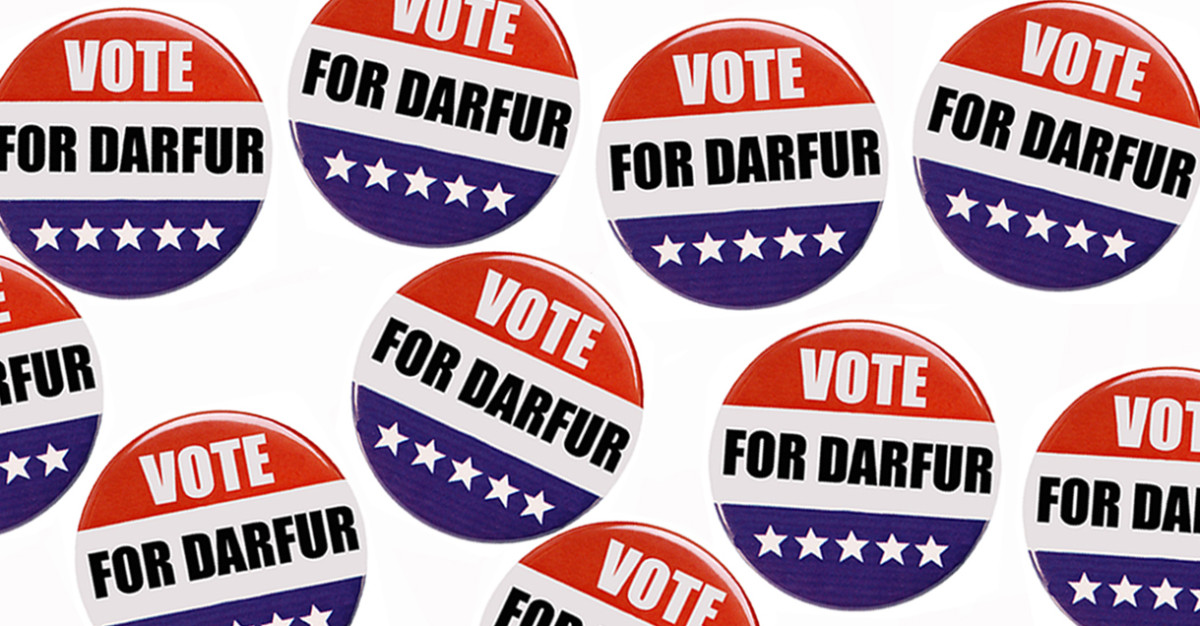
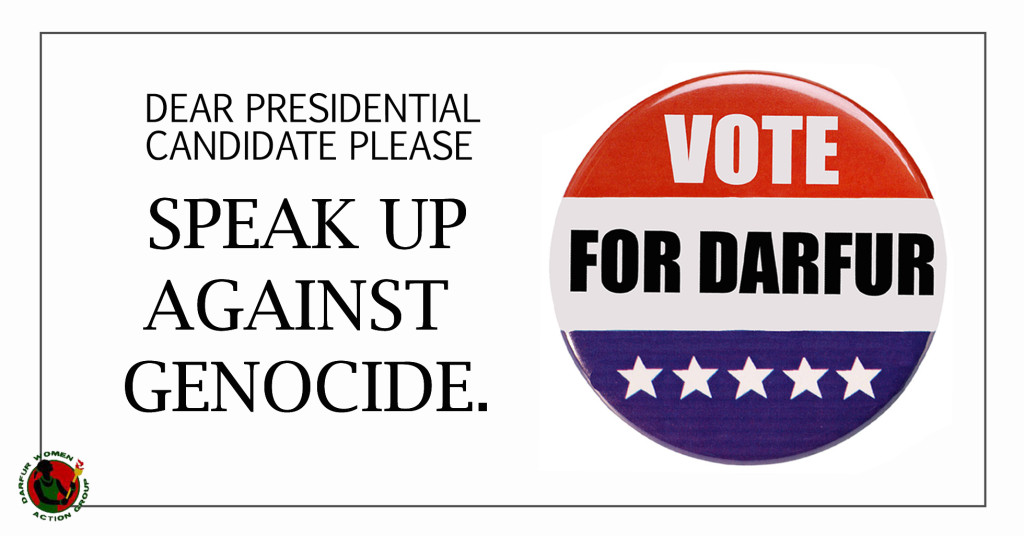 #VoteforDarfur is a bipartisan campaign directed at both the Republican and Democratic presidential nominees urging them to include Sudan and Darfur as priorities in their foreign policy plans. We are asking you, as our supporter, to demand that your candidate articulate his or her position on these issues before you vote for them. Remember, when you #VoteforDarfur, you are urging your candidate to address matters that are extremely important to the American people and their values, as well as to America’s national security:
#VoteforDarfur is a bipartisan campaign directed at both the Republican and Democratic presidential nominees urging them to include Sudan and Darfur as priorities in their foreign policy plans. We are asking you, as our supporter, to demand that your candidate articulate his or her position on these issues before you vote for them. Remember, when you #VoteforDarfur, you are urging your candidate to address matters that are extremely important to the American people and their values, as well as to America’s national security: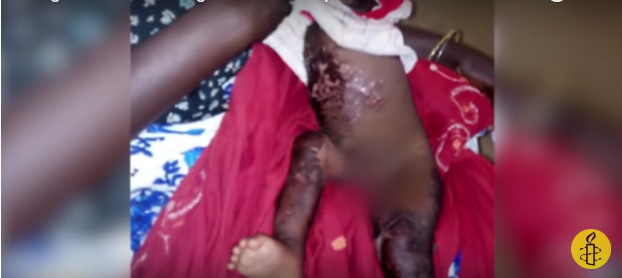
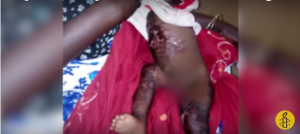 The Sudanese government along with the Janjaweed are responsible for the mass atrocities being committed in Darfur, and it seems like they are attempting to out-do themselves with every consecutive attack. In the latest report by Amnesty International on Darfur they have reported evidence of brutal chemical weapon attacks on the communities living in the Jebel Marra area of Darfur. The images and testimonies shared are not only evidence of crimes against humanity, but they are also evidence of how low a human-being can stoop while being submerged in a mental state of racist-influenced rage encouraged by a leader who shows no shame or remorse for ordering attacks towards innocent people.
The Sudanese government along with the Janjaweed are responsible for the mass atrocities being committed in Darfur, and it seems like they are attempting to out-do themselves with every consecutive attack. In the latest report by Amnesty International on Darfur they have reported evidence of brutal chemical weapon attacks on the communities living in the Jebel Marra area of Darfur. The images and testimonies shared are not only evidence of crimes against humanity, but they are also evidence of how low a human-being can stoop while being submerged in a mental state of racist-influenced rage encouraged by a leader who shows no shame or remorse for ordering attacks towards innocent people.